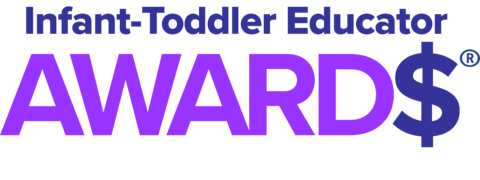Think Babies and Their Teachers
Science has made it clear that brain development occurs at a rapid pace in the first three years of life and that infants and toddlers need stable and engaging relationships with the adults in their lives to help make this development more successful. That stability is even more critical now that children and families are experiencing change and stress as a result of COVID-19. Now more than ever, we must “think babies” and do our best to prioritize their needs.
The child care field is also struggling to stay afloat during the pandemic. While some sites have closed at least temporarily, many have remained open to serve families despite greatly reduced enrollment. Early educators are making it possible for the economy to slowly rebuild and rebound. They have continued to support the workforce at large while risking their own health, giving young children some consistency when they need it most.
With this essential work, it seems clear that teachers should earn fair and competitive wages, but we know that is not the case. The low pay early educators receive, and especially infant-toddler teachers, is well-documented. These low wages increase their stress and cause financial hardships. Nearly 40% of early educators in North Carolina report having accessed public assistance.[1] Salary supplement programs are one strategy to enhance compensation. While salary supplements do not increase the base pay in the field, they can provide immediate support and relief to participants.
Infant-Toddler Educator AWARD$® Plus
Funded by the Division of Child Development and Early Education and administered by Child Care Services Association, Infant-Toddler Educator AWARD$® Plus is an education-based salary supplement program available in every N.C. county. To be eligible, a teacher or family child care provider must:
- earn at or below $19 per hour,
- work at least 35 hours per week with children birth through age 2,
- work in a site with at least three stars and
- have at least an Associate Degree with 24 birth to 5-focused semester hours.
The program is designed to better compensate and retain well-educated professionals working with our youngest children. The supplements range from $2,000 to $4,000 annually and they are issued in two installments, each after the participant completes six months in the same child care program. This ensures that young children have access to qualified teachers who stay and their educators can better meet their own needs and those of their families. They are valued for the essential service they provide.
As one family child care provider participant said, “AWARD$ Plus helps to validate the vital work we do as early childhood educators. It gives additional compensation that brings with it gratitude and value.”

Increasing Compensation and Reducing Stress
In FY20, AWARD$ Plus recipients earned an average six-month supplement of $1,271. If this were issued as an hourly rate increase for full-time employment, it would mean approximately $1.22 more per hour. The feedback from recipients makes it clear how impactful these supplements really are.
A participating teacher shared, “I think AWARD$ Plus is important because it helps single mothers as myself make ends meet. Most child care providers are living paycheck to paycheck. Just one check from being homeless because of the little pay that we make. Even having degrees, we are not making what we should and sometimes it makes you want to give up. This program has really been a blessing to me.”
Ninety-seven percent of survey respondents said that AWARD$ Plus encouraged them to stay with their current child care programs, which provides that key consistency children need. One director said, “The Infant-Toddler Educator AWARD$® Plus supplement has certainly helped with staff retention. The extra money that my teachers are receiving sometimes makes the difference between them staying at our center or leaving the early childhood education field all together.”
Workforce well-being is always important. It is particularly critical for teachers of young children because we know that stress, including financial stress, can affect classroom interactions and the quality of relationships.[2] Ninety-nine percent of survey respondents said the supplements help ease their financial stress and recipients frequently express how they are able to focus on their classrooms more.
One teacher, for example, said, “Infant-Toddler Educator AWARD$® Plus helps ease the financial stresses I feel day to day and allows me to be more present with my children in my class.”
Recognizing an Essential Workforce
AWARD$ Plus is important for early childhood educators, available when that support is greatly needed. We must continue to put our youngest children and their teachers at the top of our priorities. With the critical brain development that happens in the first few years of life, the role of early educators should not be underestimated.
In the time of COVID-19, parents who must help teach their children at home have new insight and appreciation for the value teachers bring to their families. They have helped move the conversation forward about the need for greater compensation for teachers of all ages, including our youngest. We must take advantage of this growing momentum to push for change and continue to share our appreciation for these professionals.
For more information on Infant-Toddler Educator AWARD$ Plus, visit our website.
[1] Child Care Services Association. 2015. Working in Early Care and Education in North Carolina, 2015 Workforce Study. Chapel Hill, N.C.
[2] New America. 2018. At the Breaking Point: How to Better Compensate and Support Teachers of Our Youngest Learners. www.newamerica.org.



